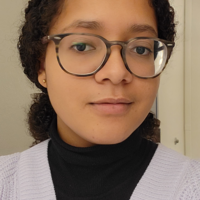Philadelphia, Rome, and Carthage: How Africa Fits Into Philadelphia's Latin Curriculum
The purpose of this project is to investigate how Africa is present in the Philadelphia Latin curriculum, while providing commentary and analysis on how the authors of these sources present Africa. This project culminated in a paper. The paper is organized into four parts: the introduction, Philadelphia in the Past: Rudolph Masciantonio Et Al., Philadelphia in the Latin Present, and the conclusion.
The introduction defines the terms and structure of the paper, as well as explains the value of this research. The proceeding section is about Latin education during 1960s-1990s, specifically covering the works of Rudolph Masciantonio. I discuss three textbooks that were part of the Philadelphia curriculum, briefly commenting on where and how Africa is mentioned, then analyzing how these curriculums could be improved. The last part of this section is a case study of the textbook, Africa in Classical Antiquity, analyzing the limitations and values of the work, through questions like, how are specific groups of people represented and are discussion questions productive in fostering a conversation about controversial topics. This section is particularly interested in the tension between understanding outdated views, while simultaneously holding the author accountable for bias and harmful language. Masciantonio endeavored an intersectional curriculum by focusing on Africa in Classical Antiquity, using some of the best sources available for his time period. However, his work fell short in guiding students and teachers to discuss complex perspectives on women and black people. While there were progressive takes on war, imperialism, and environmental change, it cannot be doubted that the content on minorities and women were sometimes harmful and created unproductive discussions.
The next section of the paper is focused on how Latin education depicts Africa in the present. I describe the means of attaining this information explaining that I chose to do interviews because of a gap in scholarly sources. I describe the content of the interviews from the notes I took, while refraining from heavy commentary to ensure that the voices of two Philadelphia School District teachers are evident and then I provide analysis and comparisons afterwards. In this section, both teachers prioritized grammar over cultural notes as they understood the needs of the curriculum and their students, but they still incorporated Africa, among other cultures, into their Latin language curriculum. Finally, the conclusion restates the main findings from each section, reflects on the research paper, and suggests some topics of future study.

Comments